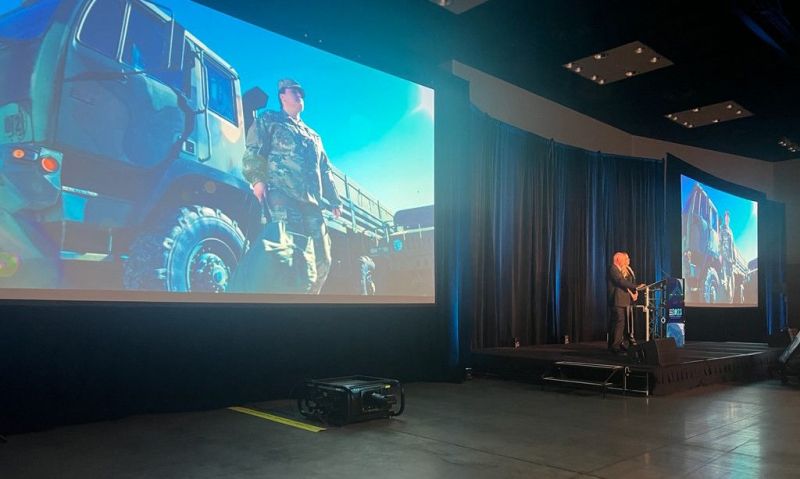
Marketing push aims to attract those who served to help fill a gap in the economy.
National Tank Truck Carriers (NTTC) used the opening general session of its convention in Indianapolis on Oct. 9 to launch a national campaign intended to attract drivers – with veterans a particular target – for the specialized trucks that transport gases, chemicals, liquids and more.
Veterans are considered an excellent fit by the industry for their skill sets, intangibles and likelihood of already having commercial licenses, HAZMAT certifications or military experience transporting sensitive liquids. NTTC President/CEO Ryan Streblow, like The American Legion, has a seat on the steering committee of Task Force Movement, the public-private initiative seeking to match the military-connected community to jobs in understaffed industries like trucking, cybersecurity and health care.
For the campaign to attract qualified employees to the industry, NTTC commissioned the Markstein Group, which presented a set of video ads to the audience. Those ads are part of a portfolio of video, audio and web promotions, the specialized microsite gotanktruck.com and more. Sixteen months of planning and testing led up to the launch; the elements of the campaign can be fine-tuned as the campaign goes on. Four “personas,” or aggregate tank trucker profiles, were introduced: the Provider, the Problem-Solver, the Adventurer and the Initiated. Illustrating the “Initiated” is a female soldier walking away from a miltary vehicle and toward a tank truck. The four personas are portrayed by actual truckers, and the Initiated woman is a real veteran.
Markstein chief creative officer Chris Hoke and brand director Lindsey Gatlin told the audience how the COVID-19 pandemic “opened a window” of public awareness into the importance of the trucking industry, and that the goal of the initiative is to make people want to “be part of the elite to keep the world moving forward.”
At the initiative’s exhibit booth after the general session ended, Hoke stated that according to the American Trucking Associations (ATA), the industry is short about 80,000 workers right now and looking at being 160,000 short by 2030. He said that in his discussions with people in tank trucking during the last 16 months, he heard often that veterans have – and enjoy, due to their familiarity with – the safety-focused, methodical mindset common to the industry and the military: “the same level of trust between people.” Some of the campaign elements are being tailored to the veteran community, as well as a page on the microsite. “They have the mindset and the training,” he said. “It’s a quick ramp-up.”
And Hoke believes a career field so vital to keeping things running can speak to a group of people who have already done that in their career paths. “People doing what they love make the world a better place.”
- Careers

